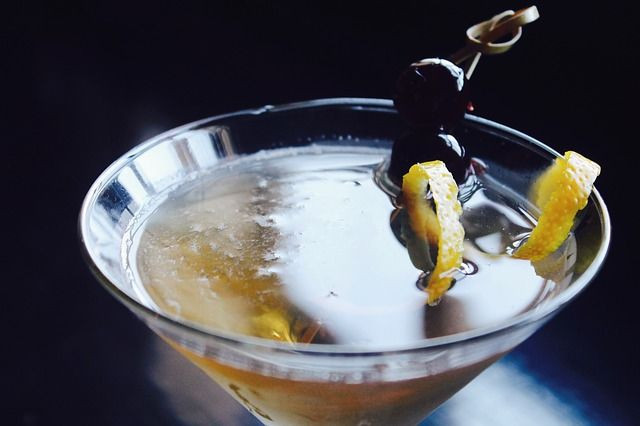Drink Spiking Isn’t An Urban Legend; It's Happening On College Campuses More Than You Realize

Date-rape drugs have become engraved in American pop culture, but despite “roofies” often being the butt of jokes, date-rape drugs are anything but funny. An alarming new study suggests drink spiking is on the rise, especially among college students. However, without proper testing, it's hard to determine for sure if drink spiking is a growing problem, or if people are simply drinking too much alcohol too often.
The study, which is now published online in the journal Psychology of Violence, was conducted by researchers from the University of South Carolina. Results are based off an online survey given to 6,064 students aged 18-24 from three different universities: The University of South Carolina, the University of Kentucky, and the University of Cincinnati.
Students were asked how many times since the beginning of the academic year they had suspected or known someone to have slipped a drug into their drink. Students could either answer with an exact number (such as this occurred three times this year) or answer “This happened, but not since the beginning of the school year.” Students who answered that they had been drugged were then asked follow-up questions, such as where it happened, and what were the consequences.
Results revealed that a total of 462 (7.8 percent) students reported that they had been drugged at some point. A further 83 (1.4 percent) said they had drugged someone else or they knew someone who had drugged another person. Although women were more likely to be the victim of drink spiking than men, a surprising 21 percent of victims were male. Unfortunately, women were also more likely to report negative consequences to their drugging, such as rape, sexual assault, or theft, while men mostly reported that their drugging was done “for fun” or “as a joke.”
According to lead researcher Dr. Suzanne Snow, the relatively high number of students who reported these incidents “indicate that drugging is more than simply an urban legend,” The Daily Mail reported.
But while the figures may be alarming, Snow indicates that without proper testing there is no way to be certain whether these students were actually victims of date-rape drugging or not.
“It is possible that some respondents drank too much, or drank a more potent kind of alcohol than they were accustomed to,” said Snow.
Not only do these tests sometimes take time to get the results, but often students will simply not report the incident. However, a team of UK scientists are currently working on a way to make date-rape testing fast and easy.
"Many people attending accident and emergency departments [ER rooms] have some kind of alcohol-related issue, particularly at the weekends," said the study's co-author Paul Thomas, a professor of analytical science at Loughborough University, in a press release. "We're aiming to develop a test that is as simple as taking temperature with a thermometer that detects when patients are more than just drunk."
Still, it's important to treat these results with concern considering the dangers associated with popular date-rape drugs. These drugs can incapacitate an individual, making it difficult for them to speak, walk, and even cause them to pass out. According to Medicine Net, in more extreme events these drugs can even cause seizures and even death.
Source: Swan SC, Lasky NV, Woodbrown VD, et al. Just a Dare or Unaware? Outcomes and Motives of Drugging (“Drink Spiking”) Among Students at Three College Campuses. Psychology of Violence . 2016
Published by Medicaldaily.com



























